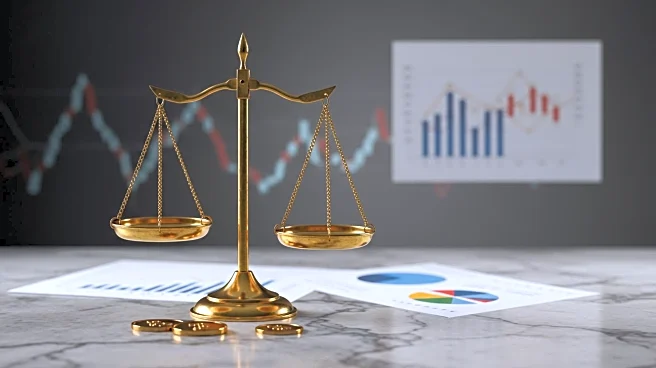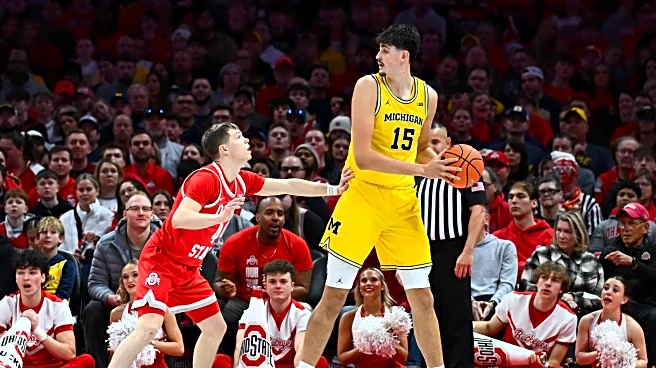What's Happening?
Jerome Powell, Chair of the Federal Reserve, has raised expectations for a potential interest rate cut in September, responding to economic pressures from President Trump's tariffs. Speaking at the Jackson Hole symposium, Powell noted the visible impact of tariffs on consumer prices but suggested that inflationary effects might be temporary. The Fed's shift to a more 'dovish' stance has led to increased optimism in financial markets, with share prices rising. Powell emphasized the need to balance growth stimulation with inflation control, as interest rates remain in restrictive territory.
Why It's Important?
The Fed's interest rate policy is a critical tool for managing economic growth and inflation. Rate cuts can stimulate borrowing and spending, supporting economic activity, but must be carefully calibrated to avoid fueling inflation. The Fed's response to Trump's tariffs, which have affected price levels, is crucial for maintaining economic stability. Powell's cautious approach reflects the complexity of navigating these challenges, as the Fed seeks to support employment while controlling inflation.
What's Next?
The Fed's upcoming meeting will be closely watched for decisions on interest rates, as policymakers evaluate the impact of tariffs and economic indicators. Powell's term as Fed chair ends in May 2026, and his successor could influence the Fed's policy direction. The Fed's ability to manage economic risks amid political pressures will be a key focus for investors and economists.
Beyond the Headlines
The Fed's independence is vital for making objective policy decisions, free from political influence. The historical precedent of Fed autonomy underscores its role in ensuring economic stability, particularly during periods of high inflation.











